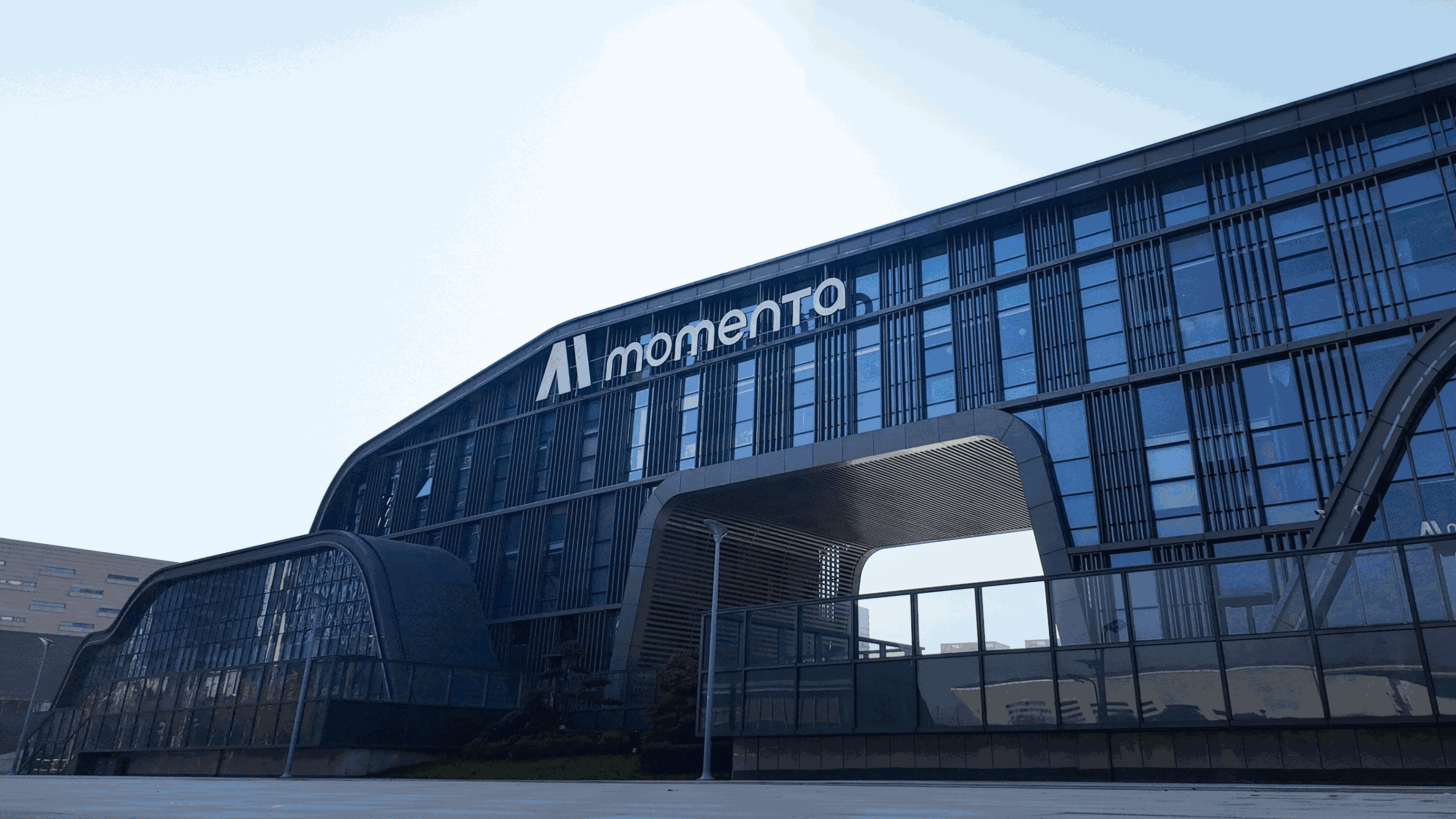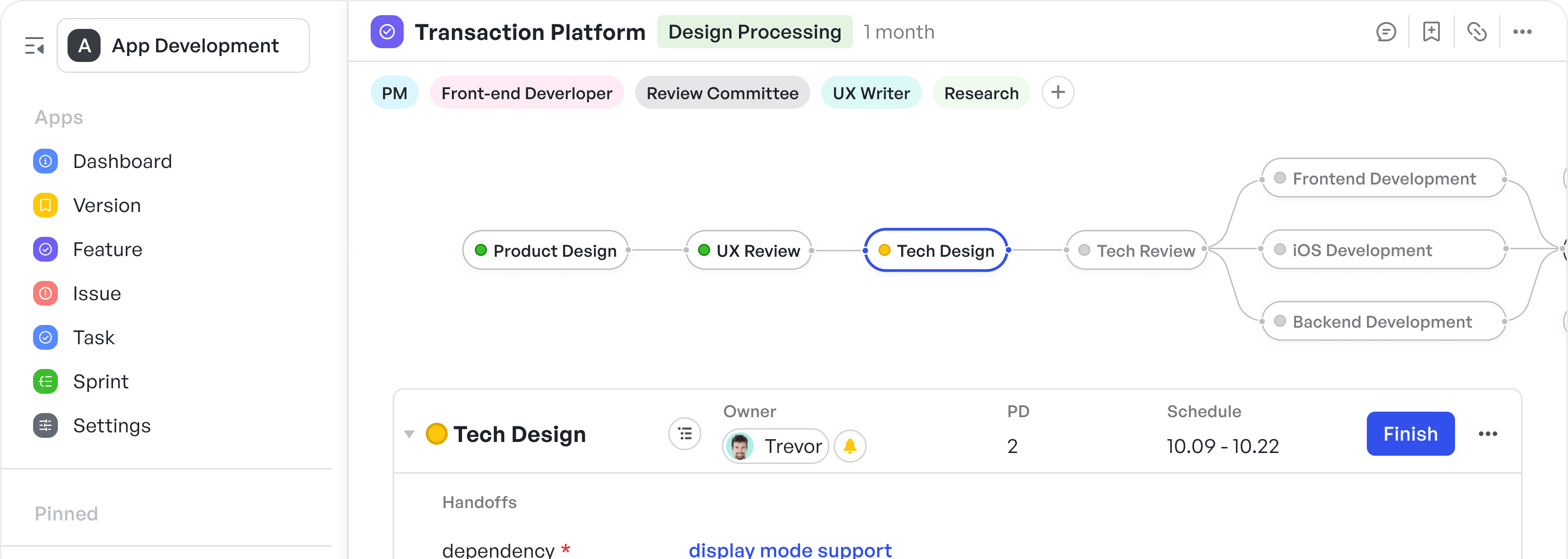Momenta, an AI ecosystem partner for automotive companies, has seen its production projects multiply several times over the past year. With clients spanning the globe, the pressure on frontline R&D teams skyrocketed. Remarkably, Momenta has managed to meet this surge in demand with only a modest increase in personnel.
What's the secret behind such efficiency? The answer lies not in a single advantage, but in a tightly integrated, high-performance R&D system. Meegle serves as the crucial "efficiency engine" that powers this system and acts as the "link builder" for technological iterations.
With the help of the Meegle, Momenta has established a comprehensive, traceable workflow that encompasses vehicle testing, issue management, feature management, and approval processes, achieving a standardized, streamlined, and automated loop. The flexible and open nature of Meegle has enabled Momenta to perfect the transition from "Import SPA to Approval SPA", ensuring that every iteration of their big model is solid and that the development of intelligent assisted driving is faster, more stable, and more precise.
Better AI, Better Life
Since its inception in Zhongguancun in 2016, Momenta has been driven by a powerful mission: "Better AI, Better Life". Their goal is not just to create technology but to use AI to bring autonomous driving from the lab into reality, making travel safer and more comfortable for everyone. Today, this vision has propelled Momenta to the forefront of the global intelligent assisted driving sector, earning partnerships with major automotive companies like SAIC and GM. Many everyday commuting vehicles now incorporate Momenta's technology into their core intelligent driving modules.
To accelerate the realization of their mission, the company has adopted the "Flywheel & Two-legs" product strategy. One leg focuses on intelligent assisted driving, accumulating vast amounts of data across various scenarios, while the other is a scalable autonomous driving Robotaxi. This year, Momenta plans to launch the industry's first production-based Robotaxi, significantly reducing per-vehicle costs. The flywheel big model supports both legs through vast data, a closed-loop automated toolchain, and data-driven algorithms.
On the technical front, last year, Momenta released the Flywheel Big Model 5.0, the first end-to-end production model in the industry. This year, the Momenta R6 Flywheel Big Model, based on reinforcement learning, will make its production debut, becoming the first in China to achieve production on an end-to-end basis using reinforcement learning.
Since its establishment in 2016, Momenta has experienced exponential growth in both the number of intelligent assisted driving installations and production models. From just one model at the start in 2022, it grew to eight, then 26, and by April of this year, it surpassed 130 models, with installations exceeding 400,000 units.
As the Flywheel Big Model continues to evolve and the number of production clients increases, the speed of model and software iterations has accelerated, dramatically increasing the workload, yet the number of R&D personnel has not significantly risen. How does Momenta leverage a small team to drive a tenfold increase in client projects and vehicle models? Senior R&D Director Fan Xiaojun reveals the secret: an excellent software architecture, advanced modeling algorithms, robust software engineering capabilities, and an effective software development process.
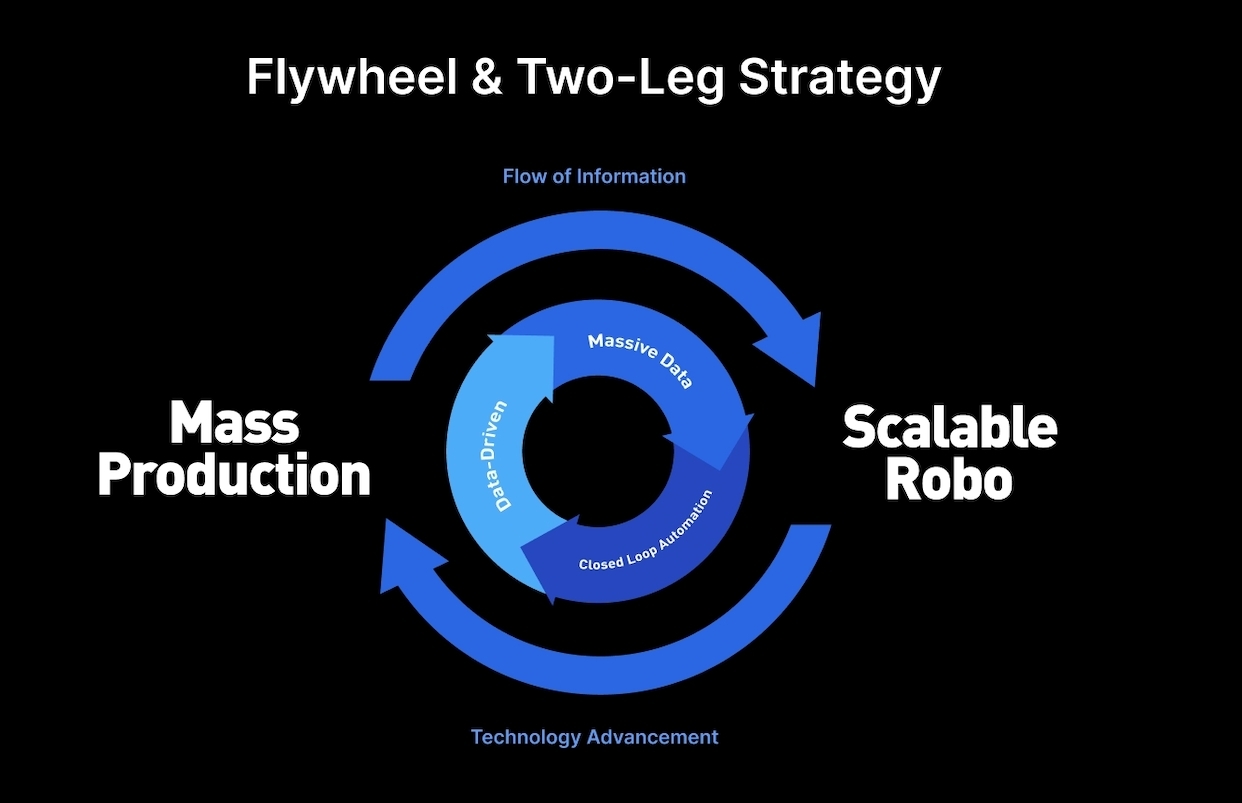
250px|700px|reset

From "Going It Alone" to a "Perfect Match" in Just Two Weeks
Early in 2024, Momenta set a clear goal of "Import and Approval SPA," which stands for Standardization, Process, and Automation. The goal was simple but critical: to ensure that customer requirements were never lost or misinterpreted and that new vehicle software releases were delivered with the highest quality and reliability. To achieve this, they needed a versatile tool that could adapt quickly to a range of scenarios.
Momenta has a core principle: if a task is repeated more than twice, it's time to automate it. The R&D team initially considered building their own solution from the ground up. However, their research led them to Meegle and they quickly realized it was the ideal fit.
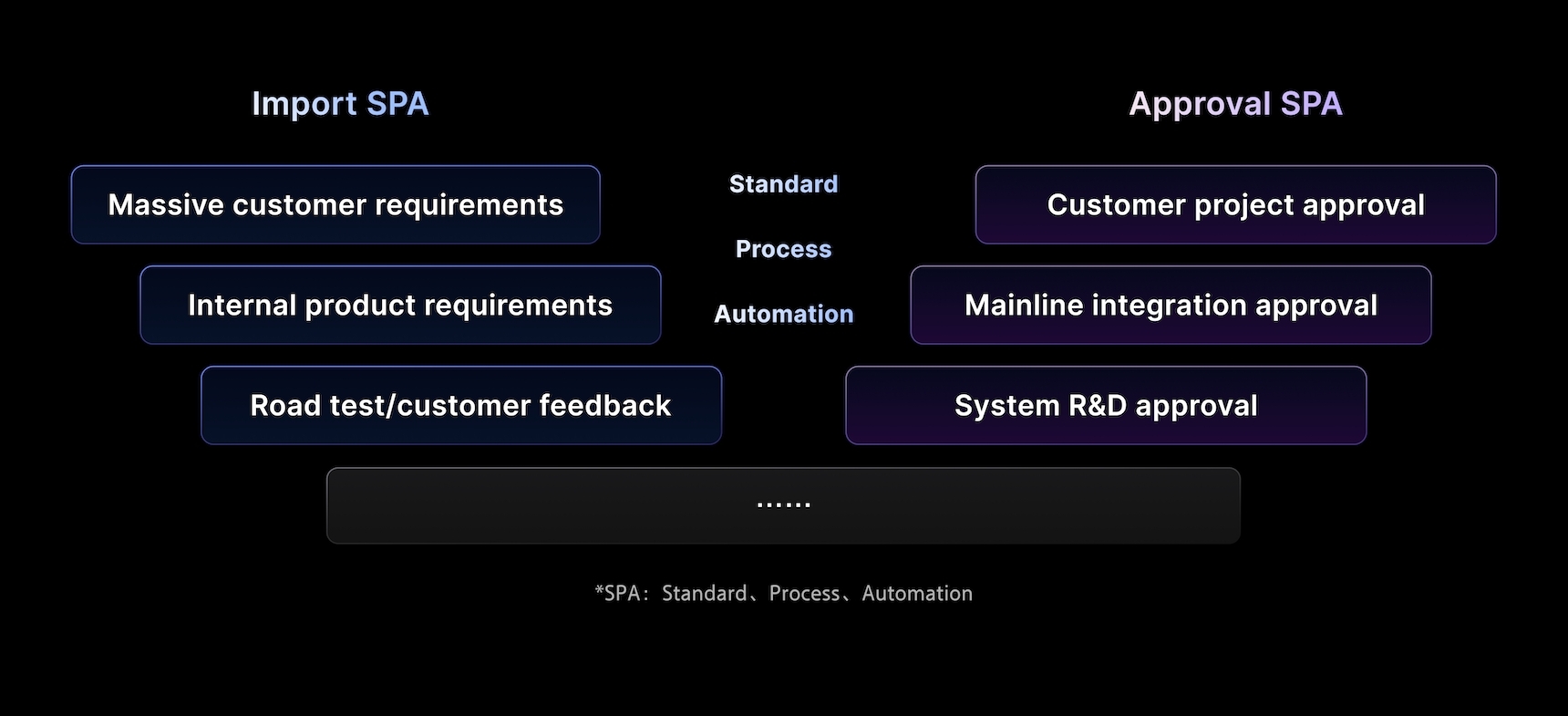
250px|700px|reset
Meegle's flexibility was the perfect antidote to Momenta's complex R&D workflows. Developing intelligent driving technology is akin to multi-front warfare, with each product line and team having its own unique workflows. Momenta has since built over 200 workflows within Meegle, covering mainline and production projects as well as specific niche scenarios.
They knew that developing a proprietary tool would not only be expensive but would also struggle to keep up with the rapid pace of business. Meegle's low-code and no-code capabilities allowed Momenta to build and adjust these workflows on the fly, dramatically lowering the barrier to digital transformation.
But what truly sealed the deal was Meegle's openness. Its standardized APIs allowed Momenta to connect core R&D functions—from requirements to testing and final release—creating a single, seamless flow of information. The team had also looked at international tools, but they often felt like a square peg in a round hole, failing to adapt to the specific needs of their domestic R&D environment.
Momenta's quick decision was no accident. After a two-week trial run, they were completely sold on Meegle. Mr. Fan put it best, "It wasn't a choice we had to make; It was a 'perfect match'. We knew exactly what we wanted to achieve, and Meegle was the missing piece of the puzzle that made it all possible."
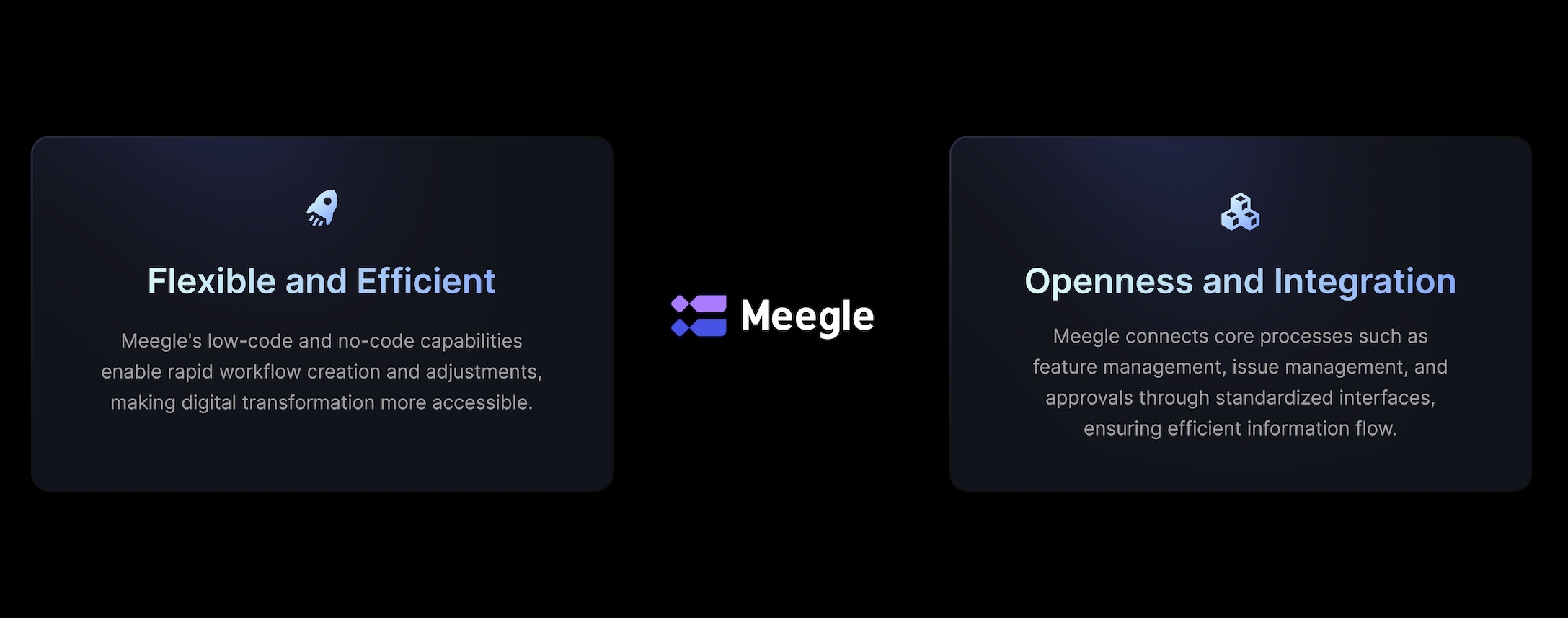
250px|700px|reset

Workflows on Autopilot: Making Information Flow Seamlessly
Momenta didn't just want to build workflows; they wanted them to run on autopilot. As Mr.Fan put it, "We're in the business of building autonomous driving brains, so our development processes should be able to 'drive' themselves, too". Meegle was the key to making that vision a reality, providing the crucial end-to-end traceability they needed.
In the automotive industry, the traceability of software development is a non-negotiable standard. From importing thousands of customer requirements to integrating and delivering final vehicle versions, every single step must be part of a verifiable, controlled, and transparent chain. To Momenta, this isn't an "extra cost" to be weighed against the budget—it's the absolute foundation for getting intelligent driving technology safely into real cars. After all, if a company can't even trace the linkages in your own end-to-end development, how can you ever trust the core algorithms in a consumer's car?
In the past, managing requirements was a major bottleneck in this transparent chain. Customer requests arrived in a jumble of different formats, from Excel to Reqif files, with wildly inconsistent levels of detail. Project managers were stuck in a constant loop, holding up to 20 meetings a week with clients just to confirm progress, wasting countless hours on manual data exports and back-and-forth communication.
The feature management system built on Meegle completely broke through this bottleneck. When paired with the ASPICE plug-in jointly developed by Momenta, and Meegle's partner, it meets the certification standards of major OEMs. Customer requirements can now be imported in bulk with a single click. What used to take half a day to manually enter thousands of requirements now happens automatically in under 10 minutes. Once a project manager maps a customer's request to a core task, the R&D team can focus on their main mission without getting lost in a sea of scattered details. Updates no longer need to be a constant struggle; the system automatically pulls together key information, slashing weekly meetings from 20 to just one or two.
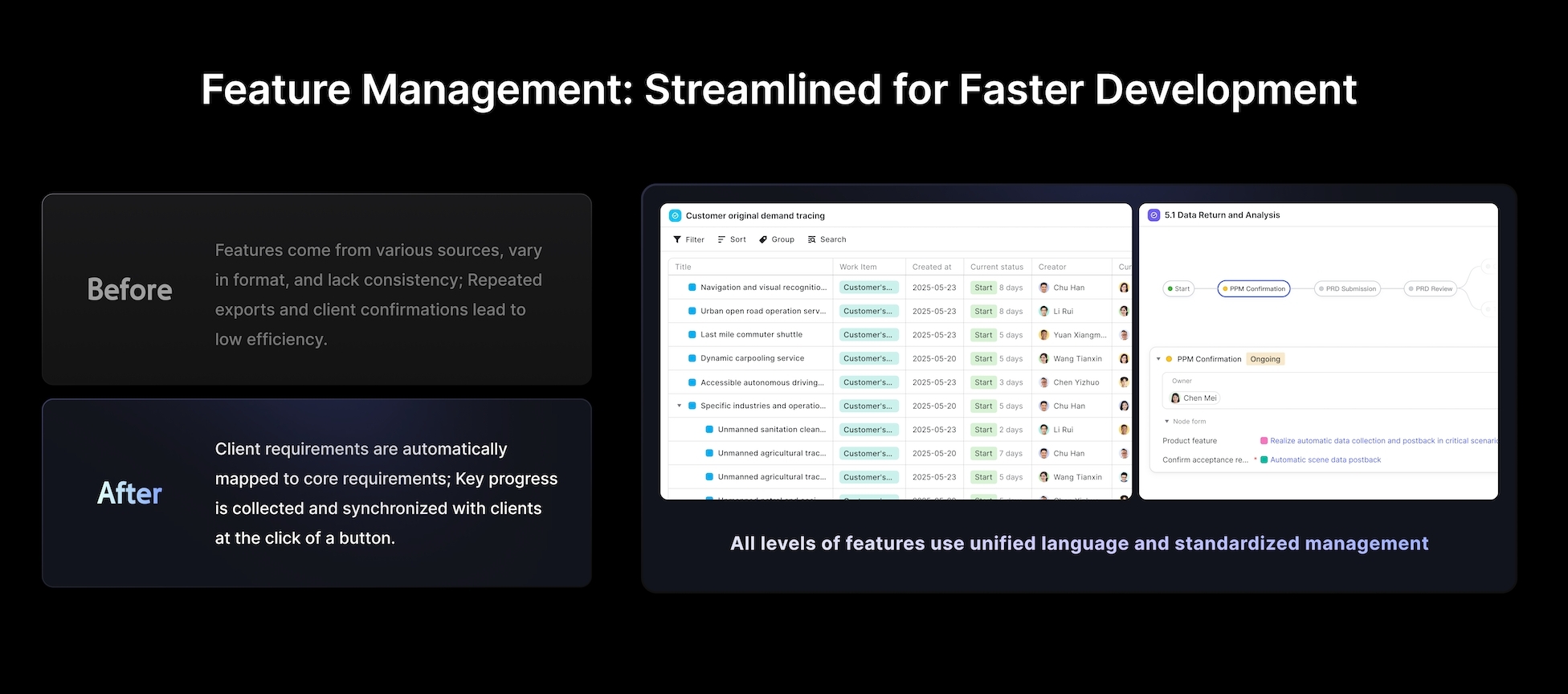
250px|700px|reset

From Road-testing to Release: Safeguarding Safety with Limited Resources
In the world of intelligent driving, road testing is a critical phase. No matter how good your simulations are, nothing beats real-world testing in a vehicle to get a true feel for how a consumer will experience the technology. But the traditional road-testing model is incredibly inefficient: each vehicle needs a safety officer to monitor it and another crew member to take notes. As their collaborations grew, so did the demand for road-testing resources, putting a strain on the entire team.
Using Meegle, Momenta built a comprehensive road-testing management system that covers the entire process, from planning and test case design to execution.
Once a test plan is finalized—which car to use, what route to take, and which tests to run—it's synced with the vehicle's large display with a single click. The safety officer simply follows the on-screen prompts. If they spot an issue, they can press a button in the car to record an audio report. The system automatically sends the audio and vehicle data back, generating an issue list that includes vehicle info, software version, and test cases. Once the test is over, a full report is generated automatically. The efficiency gains were immediate: a single road tester can now manage up to 10 vehicles at once, a tenfold increase in productivity. The testing process is now more automated and fully traceable.
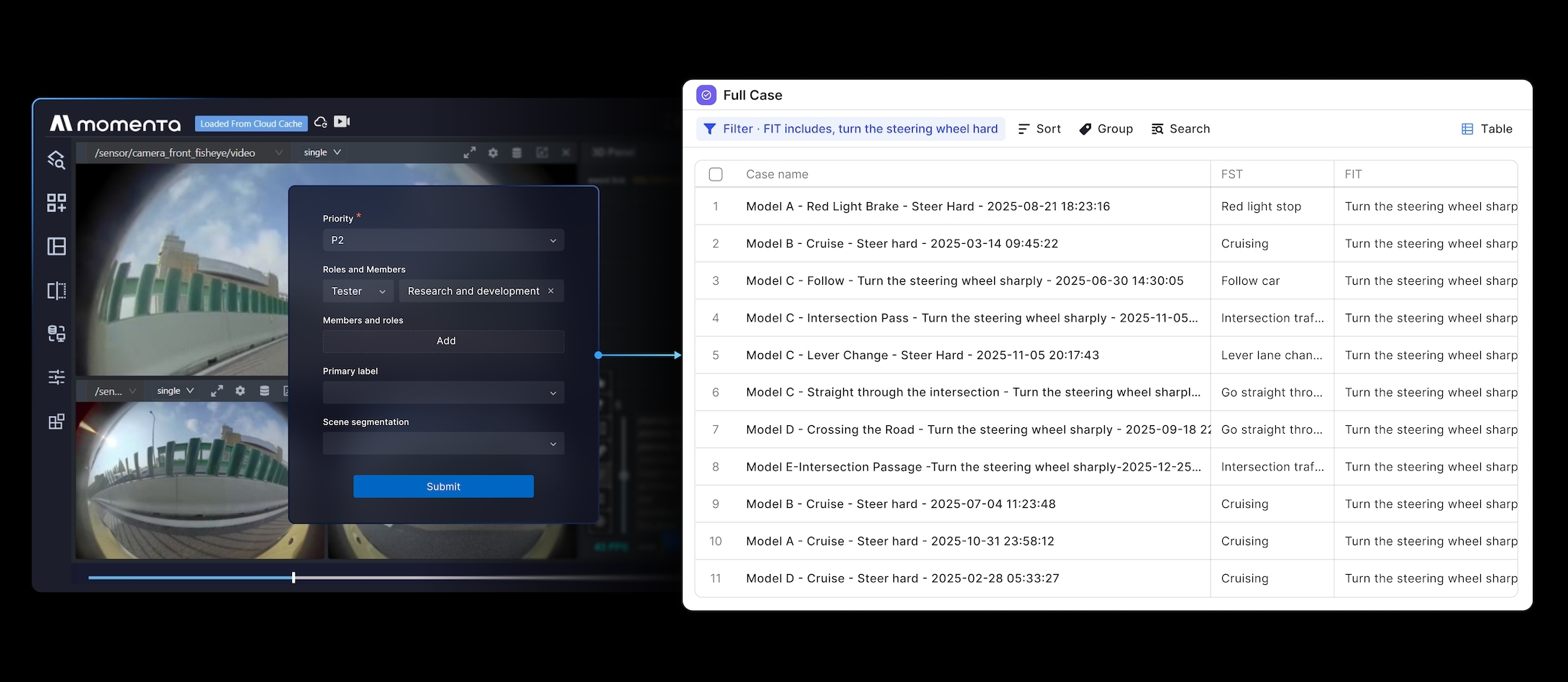
250px|700px|reset

Finding a problem is only the first step; fixing it efficiently is what really matters. Momenta uses a "Meegle + AI" combination to turn issue management from a chore into a seamless workflow. Issues can be reported from the vehicle with the push of a button or a flick of the high beams, and client feedback is synced to the system instantly.
AI automatically clusters these issues. For example, one client once imported over 4,000 issues, which the AI quickly refined down to a manageable 300, drastically cutting down on repetitive analysis work for the R&D team. The AI even provides a preliminary diagnosis, presenting a "first-look" with text and visuals. If the R&D team thinks the analysis is off, they can provide feedback with a click to help the AI model learn and improve.
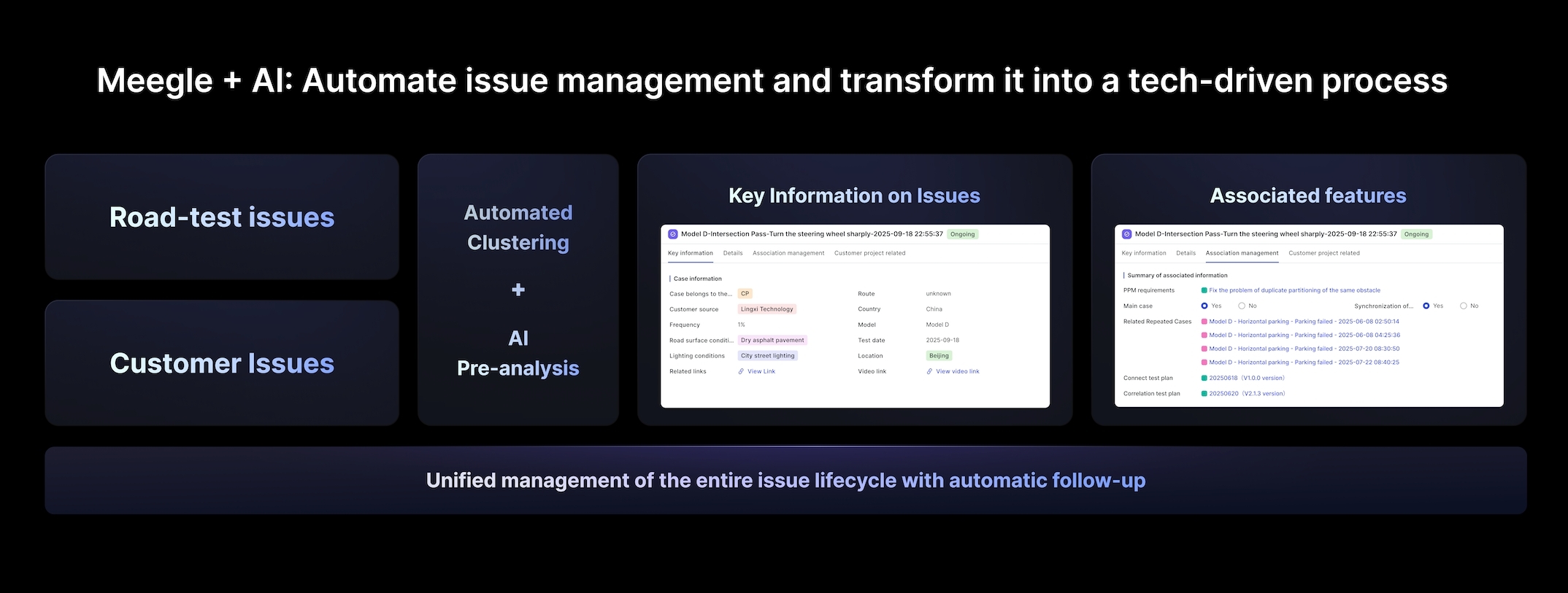
250px|700px|reset

After testing comes release management, which serves as Momenta's final line of defense for safety. In the autonomous driving world, "the algorithm works" isn't enough to justify a release. That's why Momenta uses Meegle to implement their "SPA" release process, a multi-layered gatekeeping system.
Every PR submission has to pass code checks and unit tests. After a software module is integrated, it goes through a bench validation. If a product involves multiple modules, it undergoes simulation and real-world vehicle testing. Finally, for a mainline version to be released to a client, it has to follow a dedicated process. Every single version has to complete this rigorous workflow before it can be installed in a client's vehicle—it's Momenta's steadfast promise to deliver a safe and reliable product.
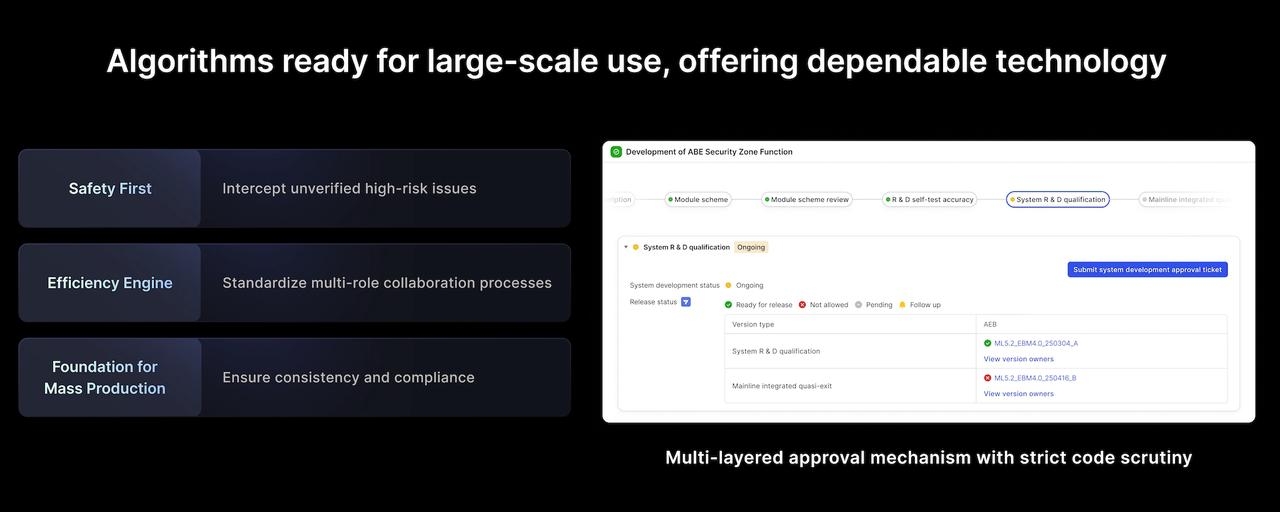
250px|700px|reset

The Efficiency Engine: Simplifying Complexity
For Mr. Fan, the biggest value of Meegle is how it helped Momenta implement the "SPA" model: Standardization, Process, and Automation. These three letters transformed their entire workflow, from initial requirements to final delivery, into an ideal state.
Today, Momenta has integrated over 20 internal systems and developed more than 50 custom plug-ins within Meegle, handling over 1.2 million API calls every day. This automated flow of data between platforms has supercharged their R&D efficiency. With Meegle as their efficiency engine, Momenta's iterative development is more robust, making their intelligent driving R&D faster, more stable, and more precise.
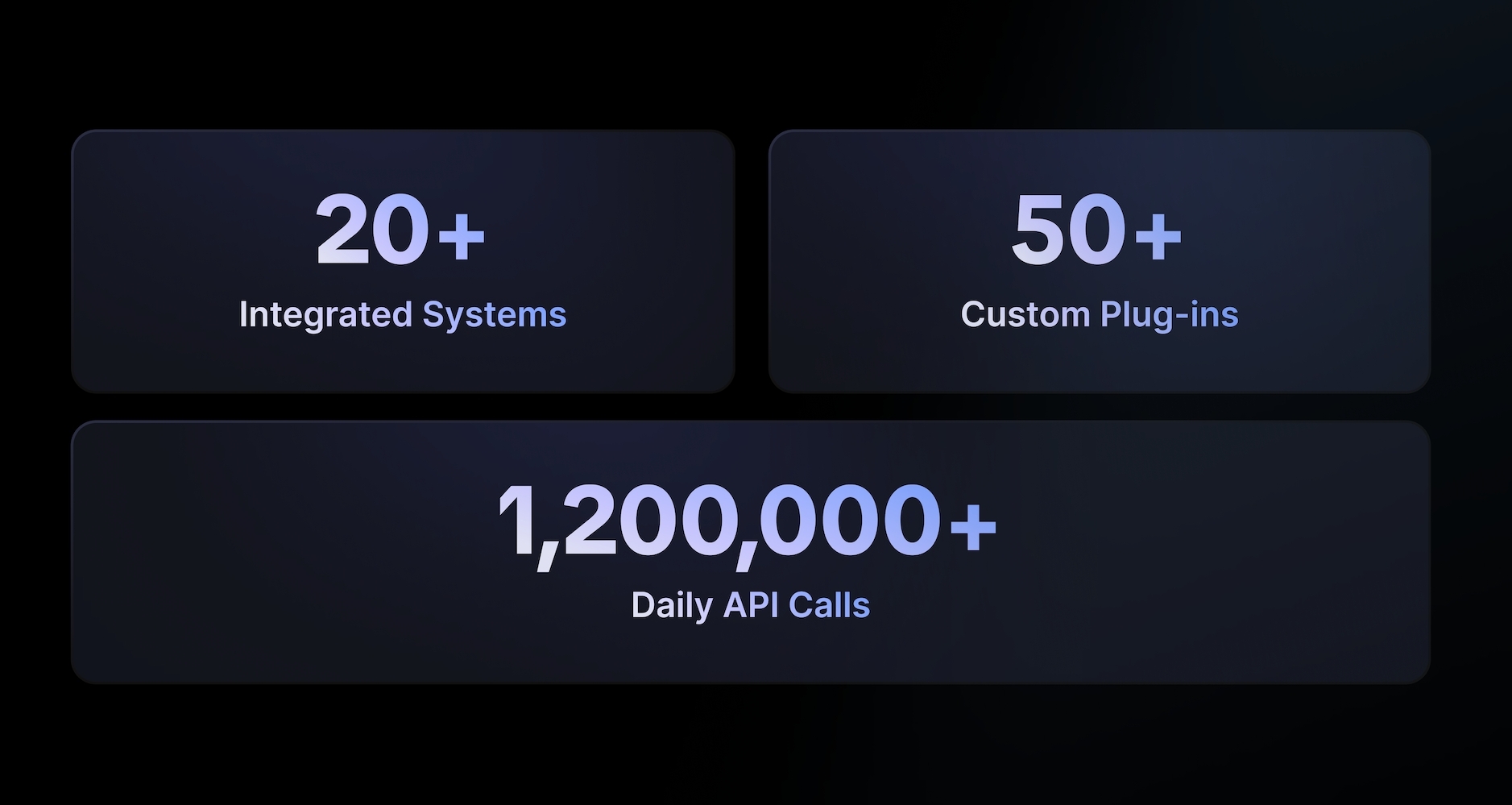
250px|700px|reset

But this collaboration is about more than just boosting efficiency. As Mr. Fan perfectly puts it, "The real value of digital tools isn't just efficiency; it's about freeing our engineers' hands so they can focus on work that truly matters". When repetitive tasks are handled by process automation, the R&D team is free to pour their energy into experimenting with next-generation AI models, refining safer algorithms, and pushing the boundaries of artificial intelligence.
Momenta CEO Cao Xudong believes the company is standing at the forefront of what he calls the "Moore's Law of Intelligent Driving". To not only keep up but push beyond it and achieve "intelligent driving for all", Momenta needs to do more than just break through technical barriers. They need an "ecosystem revolution" of collaboration.
Their collaboration with Meegle is a perfect microcosm of this revolution: using automated workflows to unlock human potential and leveraging flexible tools to adapt to ever-changing business needs. The ultimate goal is to get the benefits of intelligent driving into the hands of everyday people, faster and more reliably. It's the ultimate expression of their mission: "Better AI, Better Life".

